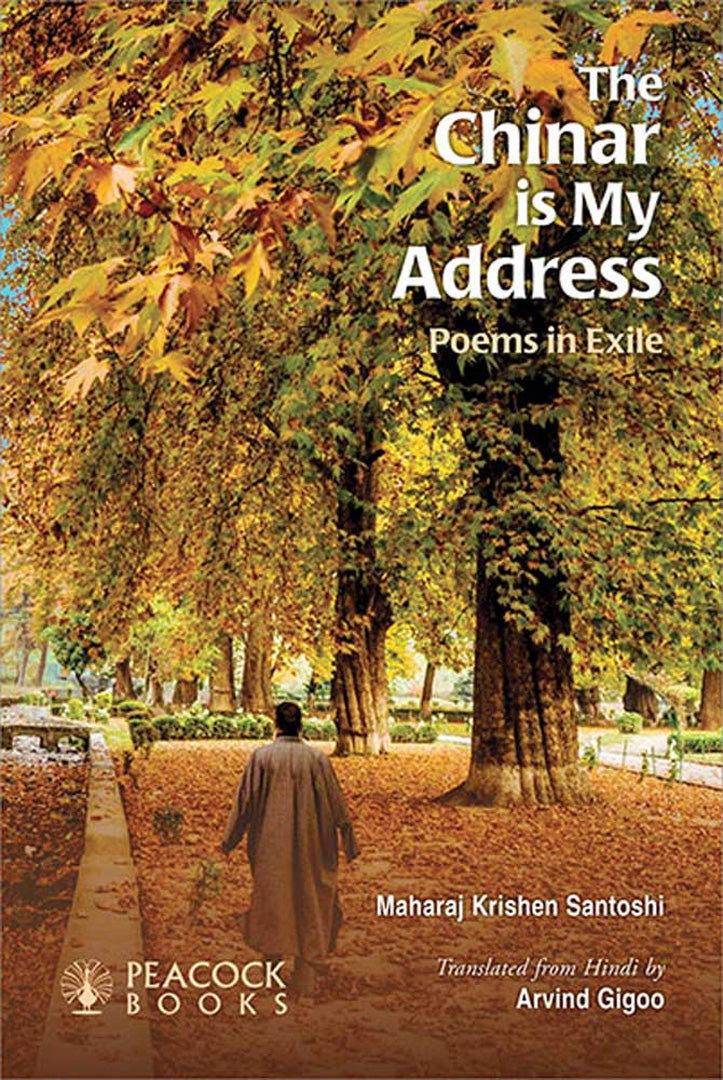The Chinar Is My Address: Poems in Exile
The Chinar Is My Address: Poems in Exile
Maharaj Krishen Santoshi
Couldn't load pickup availability
Share

More Information
- ISBN13:
- Publisher: Atlantic Publishers & Distributors (P) Ltd
- Publisher Imprint: Peacock Books
- Publication Date:
- Pages: 82
- Binding:
- Item Weight:
- Original Price:
About The Book
The Chinar is My Address: Poems in Exile contains English translation of fifty Hindi poems of Maharaj Krishen Santoshi. The translator, Arvind Gigoo selected the original poems from various Hindi poetry books authored by Santoshi. The poems in this anthology are about the pain of migration/exile. Kashmiri Pandits have been living hollow and miserable lives since 1990 when they were forced to flee from the beautiful valley of Kashmir. The poet himself is a victim of sorrow, torture and hopelessness inflicted upon him and others by displacement and exodus. The poems reflect the despair, angst and tragedy of the old, middle-aged, women, and children expressing the innermost feelings of a community affected by militancy, terrorism, political blunders and apathy of the rulers. The references to myths and historical happenings in the poems enhance the tragedy of existence of the exiles, their wounded sensibility, and nostalgia.
The symbols and metaphors used in the poems mirror the uncertainty, pessimism and darkness of the soul as the migrants have been living in an alien land far away from their homeland. Some of the poems are allegorical in nature. At times the poet is a fabulist. In “The Hawk”, the hawks are the persecutors, and the sparrows are the persecuted. “Ration Card” and “My Name” depict how these refugees have lost their identity in their own country. In “Minority”, the poet says that he saved his life in the horrible atmosphere of death and decay in order to survive. The dream sequences in some poems are surrealistic in nature. “Monsoons in Pakistan” presents the innocence of a young girl; “The Hood” describes the horror of living in a hot climate; “Snow” reminds an old lady of her own house in Kashmir. However, in “The Anthropological Museum”, the poet is hopeful of return; “The Old Man” presents a picture of despair; in “The Wooden Swords” the poet is critical of the leaders of his own community, and in “A Pregnant Woman in Exile”, the woman wants to make her child tough and brave so that he lives a life of dignity in a hostile world.
The anthology is a significant contribution to the genre of Literature in Exile, perhaps for the first time in India.
About The Author
Maharaj Krishen Santoshi, born at Mattan in Kashmir in 1954, started writing short stories and poems in Hindi during his college days. He did M.A. in English literature from the Punjab University. His poems, literary reviews, research papers; and translations are published in leading literary journals of India. His Hindi poems have been translated into several Indian languages.
The winner of prestigious Central Hindi Directorate Award, New Delhi, (1993), given by the Hon’ble President of India in (1993), and the Best Book Award given by the J&K Academy of Art, Culture and Languages in 2007, Maharaj Santoshi was forced to leave Kashmir in 1990. Since then he has been staying in Jammu.
Mail: nk_Santoshi@rediffmail.com
Arvind Gigoo translates Kashmiri and Hindi short stories and poems into English and lives in Jammu.

